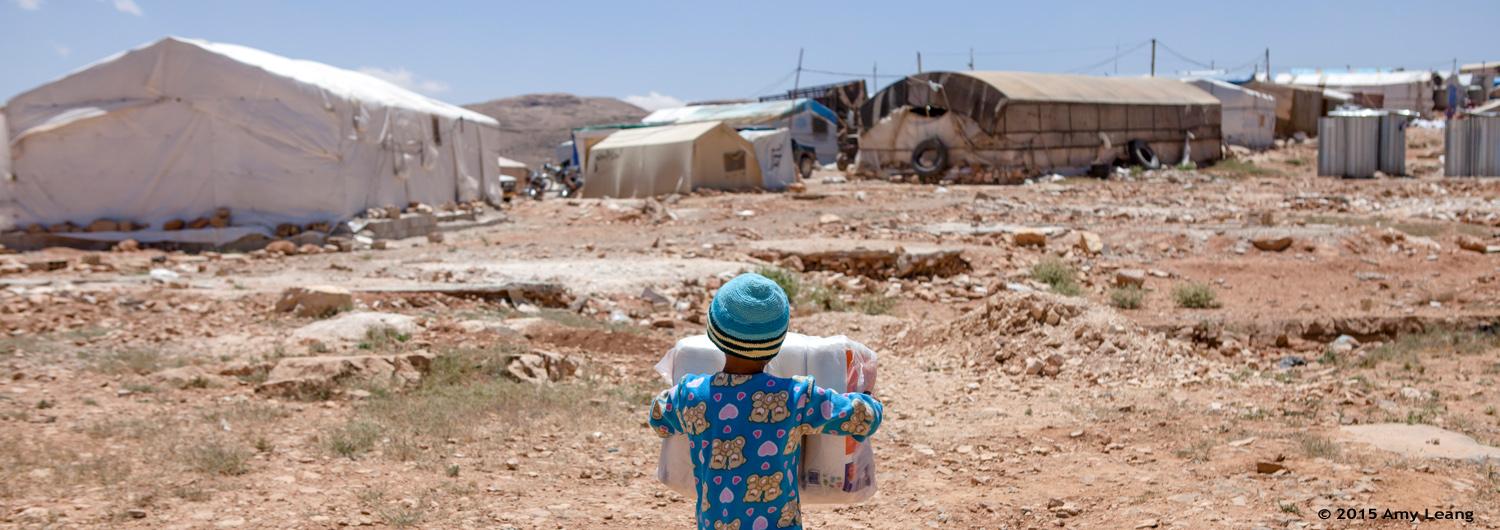News
Syria: Four Years of Crisis
11/03/15

This week marks four years since the start of the conflict in Syria – a conflict which has left more than 200,000 people dead, 3.8 million people seeking refuge in neighbouring countries, and more than 7.6 million more displaced. And the humanitarian situation continues to be bleak: about 6 out of 10 people are in urgent need of humanitarian assistance and an estimated 1.18 million Syrian refugees are expected to arrive in the five neighbouring host countries this year.
Our teams and other organisations have scaled up life-saving programmes in Syria, Lebanon, Jordan and Iraq, providing a lifeline for hundreds of thousands of people; but the magnitude of the humanitarian crisis means that millions of people are in need of urgent help.
As our colleague Jean-Raphaël Poitou, Regional Director for Action Against Hunger in the Middle East, told journalists at a press conference this week: ‘The Syrian refugee crisis is one of the worst the world has seen. Its impact on children is devastating. More than half of all refugees are children. And a political solution – the only viable one - seems further away than ever.’
‘The refugee crisis has taken a particularly heavy toll on Lebanon which is struggling to cope with the huge influx of refugees. One in four people are a refugee and the humanitarian situation in the country has become untenable. Key donors like the World Food Programme lack the crucial funding required to meet the urgent food needs of millions of people and Syria's neighbours are tightening measures on their borders. As a result, the number of Syrians trying to cross the Mediterranean has increased dramatically in recent months.’
The challenge of access
According to Gonzalo de Palacios, our Security Manager in the Middle East, ‘the fragmentation of Syria, the proliferation of armed groups and the deteriorating crisis in Iraq since early 2014 have meant that humanitarian access to families in need continues to be extremely limited. Some areas cannot be reached at all. The security risks for both aid workers and those receiving assistance are huge; and journalists and aid workers are increasingly targeted.’
The international community shows signs of fatigue
In the run-up to the international aid conference on Syria later this month, humanitarian agencies have called on donors to follow through on pledges and not cut assistance to millions of Syrians (in 2014, only 61 per cent of the $6 billion pledged was followed through). As Jean-Raphaël Poitou said: ‘Donors shouldn’t only pledge funds in response to the $8.4 billion UN appeal for humanitarian relief for Syria. We must also reduce the pressure on neighbouring host countries, who are struggling under the weight of this unprecedented crisis, and contribute to resettling Syrian refugees, with rich and developed countries collectively resettling at least 5 per cent of the total Syrian refugee population by the end of 2015.’
Our teams are helping more than 3 million people in Syria, Lebanon, Jordan, Iraq and Turkey.